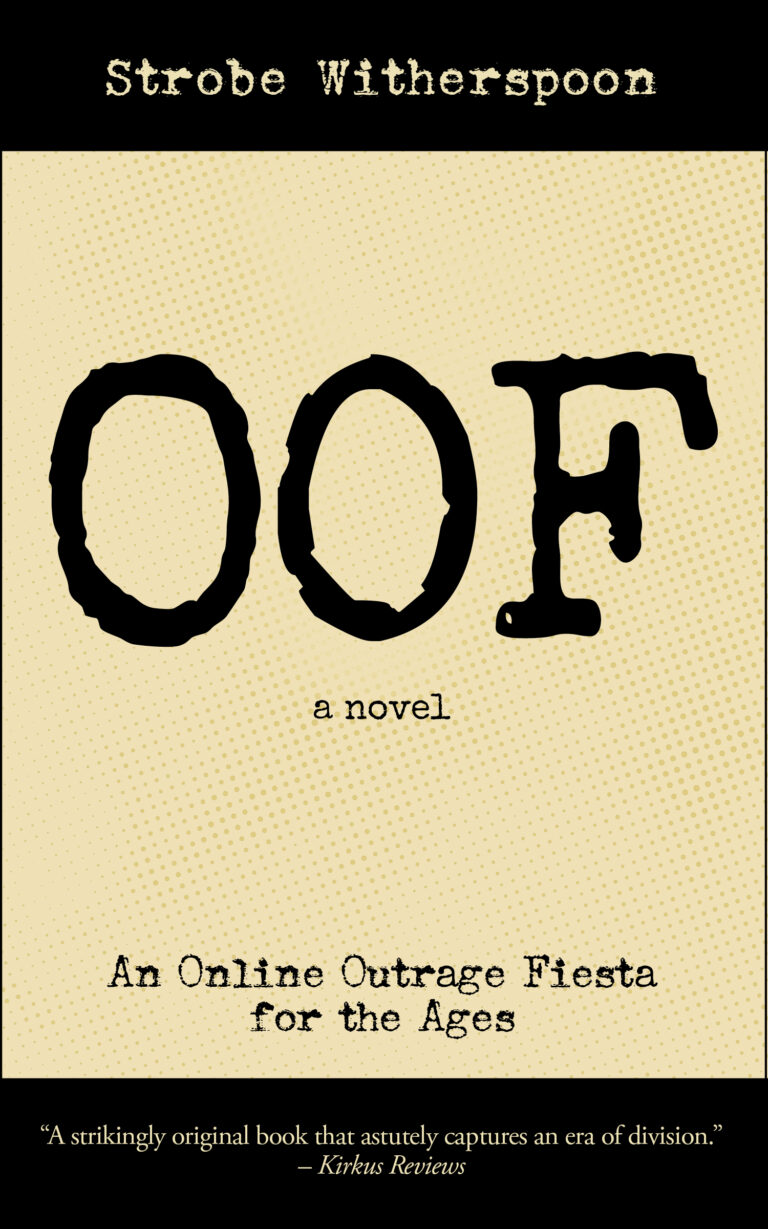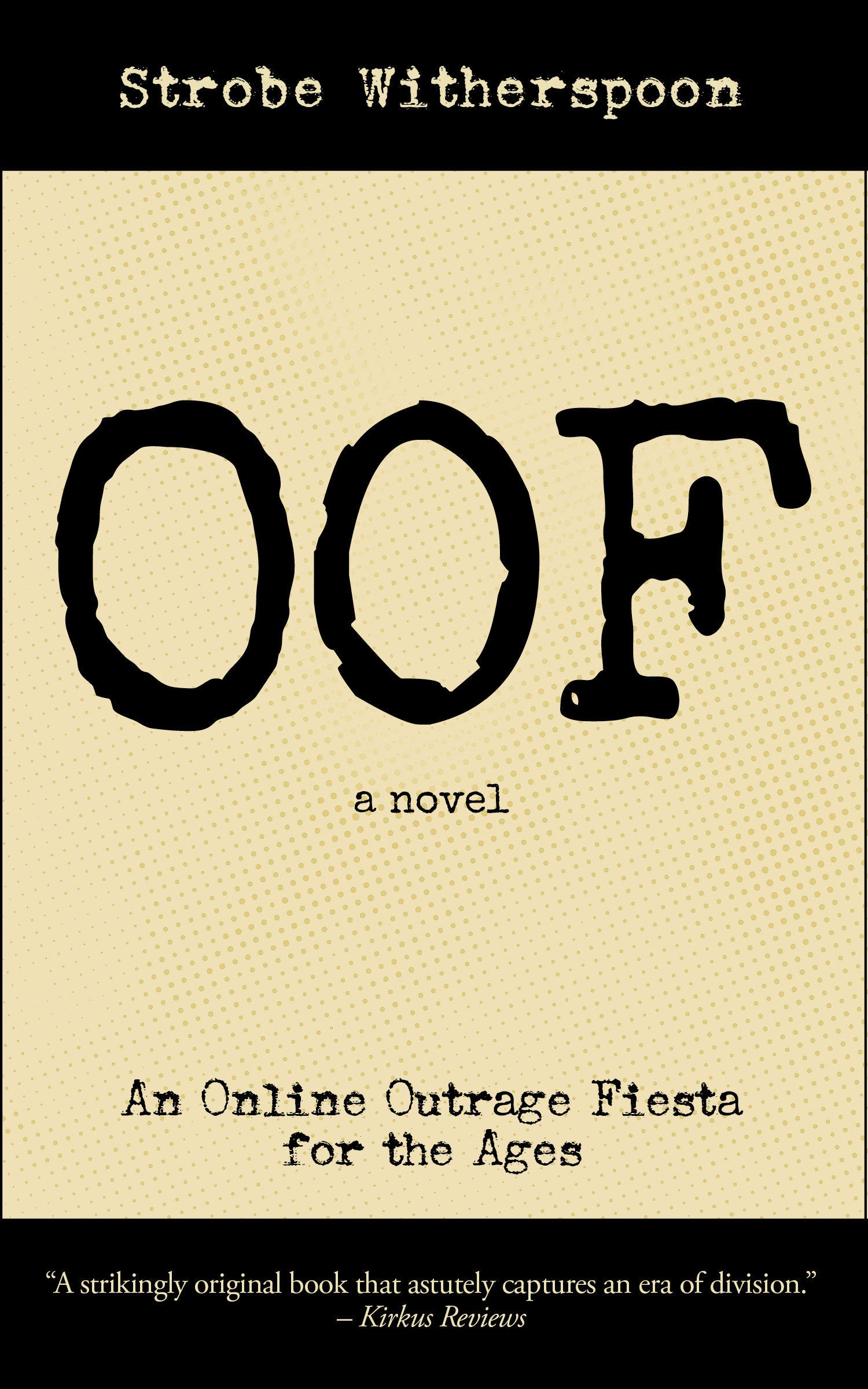Some of the very best books can be ones that teach you something about yourself. They can also, perhaps, be some of the most difficult to take. Strobe Witherspoon’s OOF – which stands for Online Outrage Fiesta – is one such book. Holding a mirror up to societal chaos through a lens that’s less than subtly focused on the Trump administration and their surrounding culture, although in a somewhat oblique and ‘fictionalized’ way, OOF tracks online reaction around the launch of a fictional book about the First Lady, who is less than subtly based on Melania. The book causing such outrage is not the one you’re reading, though you do get to see excerpts from it. Instead, readers learn about the story of Witherspoon – who could be described as something of a clickbait merchant – through the eyes of the public as he comes under ever increasing pressure around the launch of the book.
The fallout is viewed through the lens of a global scandal, with a vastly varied style of writing exploring angry tweets, a New Yorker profile, book excerpts, academic studies, and a group of people utterly convinced the text is at the heart of a major conspiracy linked to the deep state, operating through realms like Substack. There are entertaining aspects of the book, and serious ones. Lead character Witherspoon’s growth as a pariah of more than the literary world, and the abuse of his family, for example, are clearly not warranted, and nor is the air of darkness that rises because of the backdrop to his book. OOF shines a light on celebrity culture and the dehumanizing of people at a certain level of fame, while at the other end of the spectrum, highlighting how the less-successful are willing to sell their souls to get to the top. There are ludicrous product promotions, massive self aggrandizement, and ridiculous conspiracy theories littered through the text, all of which feel depressing, if not entirely unrealistic. Collectively, perhaps, they create some form of ‘complete picture’ but also one dense with extreme positions.
The net result is an exploration of our own culture, and will inevitably contain things that irritate almost any reader, despite being an intelligent and reflective book. Personally, I found certain aspects to be exactly the kind of thing I’d instinctively walk away from if I found it online, and needing to read the silly hot takes to get the full plot was sometimes hard to take. That said, reflection on our manic, publicity-fueled and sometimes ludicrous online culture is interesting, and perhaps not done often enough in a way as sharply satirical as this. An ability to even write from all the different perspectives and in so many different styles is quite the skill, and while it can feel disjointed, its certainly a spectacular showcase, too. Readers should be prepared to be provoked, irritated, and ultimately contemplative. Which is probably all you can ask from a fictional text pointedly exploring our flawed relationship with polarized ‘hot takes’ and its real-world impact. OOF is not always enjoyable, but well worth a read, especially for those engaged in the contrary world of online self-promotion and commentary.
A valiant attempt at satirizing the almost-too-ludicrous-for-satire world of the online hot take, OOF is cutting and reflective, a close-to-the-bone societal mirror. It’s also a sad fictional inditement of our online culture that’s at times tough to read.
~James Hendicott for IndieReader


